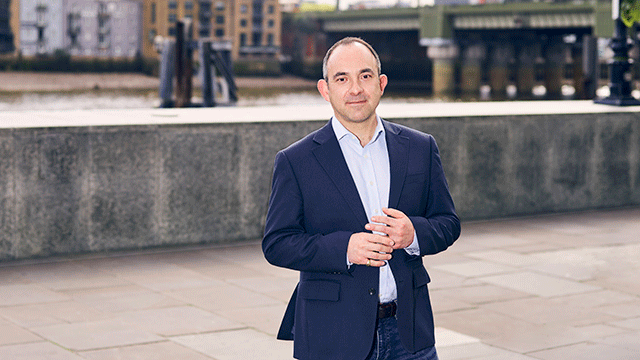From Devo-Max to Devo-Barely-Mentioned-At-All: what a difference a week makes. The mood among developers at this week’s Conservative Party conference in Birmingham was very different to that at the Labour Party bash in Manchester a week earlier.
Where the post-Scottish referendum devolution debate had galvanised the property community and councils in Manchester, this week in Birmingham there was no such unifying theme. Unless, of course, you count tension and recognition that better co-ordinated action is needed.
All this was in evidence at another Big Think dinner staged by Mishcon de Reya and Central, again supported by Estates Gazette.
There was continuity in the group that had taken part in the first dinner in Birmingham: among the returnees were Daryl Flay and Martin Bellinger of Essential Living, Martyn Evans of Cathedral Group, Farrells’ Max Farrell and Dan van Gelder, chair of the Westminster Property Association and co-founder of Exemplar. Steve Norris, chair of Soho Estates, swelled the private sector ranks, while the politicians in the room were blue not red: among them were Ravi Govinda, leader of Wandsworth council; Robert Davis, deputy leader of Westminster council; former planning minister Bob Neill; and current housing and planning minister Brandon Lewis.
Tension is rife
Tension? Not always a bad thing. It can be creative, and often constructive. But it is rife right now. Tension between local and central government, and between the private and public sectors. Tension in meeting the competing demands for office and residential stock, and in the desire among many to own homes that they can only afford to rent. And ultimately, and in every respect, tension between the short and the long terms.
But it was government proposals to scrap exemptions to office-to-resi conversion rules that was perhaps the biggest source of tension over dinner.
Here, at least, central London boroughs, and the developers operating within their boundaries, were united in their pleas to central government not to change a system that ain’t broke.
“We have exemptions and they work well,” said Robert Davis, himself the Westminster council cabinet member responsible for the built environment.
His leader, Philippa Rowe, left Lewis in no doubt about what would happen if more commercial stock in her borough was given over to resi.
“The problem in the West End is that, with the combination of a lot of office space, huge demand to be there, office prices going up – though nothing like as much as residential – you push out the creative industries, the small businesses, the quirky things that make the West End a place where everyone wants to be. If you’re left with the corporate headquarters and hedge funds, it loses its appeal and you’ve killed the golden goose. This is what we’re facing with office to resi conversions.”
Steve Norris said it was this and the march of retail brands that threatened the very fabric of the city. “It’s crazy to kill the golden goose,” he said. “What makes Westminster what it is, is that it has in part a transient population and in part a stable population. I’m dealing with a few sites at the moment which, if you turned them all to residential, you would kill it stone dead.
Killing the brands
“In Soho we consciously sacrifice covenant strength in order to kill brands. We don’t want Next, Gap, Accessorise, Starbucks – anybody of that sort. I’d sooner have the Algerian Coffee House, the next Paul Smith, the next Vivienne Westwood, a few leather bondage shops.
“We don’t do it purely for charitable reasons, we do it because it preserves our unique character.”
London School of Economics director Tony Travers took up the baton: “Left to pure economics, all the theatres would close down.”
Van Gelder offered a solution: “We don’t just need housing targets, we need office targets too.”
It wasn’t quite the barrage that this account may sound like. But Lewis, unlike some of his ministerial peers, and indeed some of his civil servants, was at least engaging with the industry, listening and perhaps dispelling the tension.
“The mayor’s team has come to see me in the last 10 days about London exemptions and I am aware of the issue,” he said. It would be an exaggeration to say ‘he purred’. But it sounded conciliatory. Promising, even.
It fell to Pat Brown, in the chair, to seek consensus. “We all have to take responsibility for developing the ecology of a place,” she said.
As perhaps the most famous Conservative politician of all once nearly said: “Where there is tension, may we bring harmony.”
damian.wild@estatesgazette.com
Read Susan’s Freeman’s conference blog at www.estatesgazette.com/blogs/focus/










